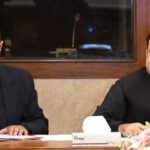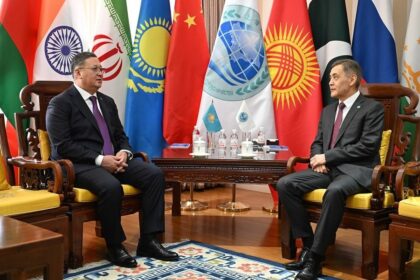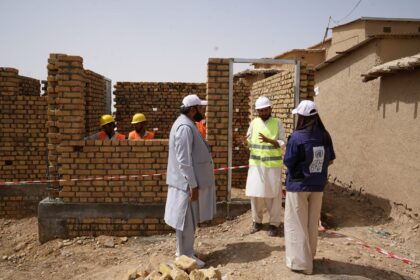In Islamabad government leaders, development partners and youth advocates gathered to mark World Contraception Day as part of the global Made Possible by Family Planning campaign, adopting the national theme Plan It. Own It: Reproductive Rights for Everyone.
The Ministry of National Health Services, Regulations and Coordination worked with FP2030, UNFPA, Greenstar and other stakeholders to bring together parliamentarians, health experts, FP2030 Asia Pacific representatives and young leaders to reaffirm Pakistan’s commitment to ensuring universal access to contraception and reproductive health services.
Federal Secretary Hamed Yaqoob Sheikh framed contraception as a fundamental human right and underscored the government’s resolve to protect reproductive choice and dignity for all. He noted Pakistan’s FP2030 commitments to raise modern contraceptive prevalence, reduce unmet need and expand quality family planning services as central to public health strategy.
Dr Shabana Saleem, Director General Population, highlighted how family planning and reproductive rights drive better health outcomes, stronger education prospects and greater economic resilience, repeating the campaign mantra that so much is made possible by family planning.
FP2030 regional lead Mr Dakshitaa praised Pakistan’s progress while calling for renewed urgency to address inequities so no one is left behind. He stressed that family planning is not only a health intervention but an enabler of women’s empowerment, leadership and community resilience.
A short video presentation illustrated the health, social and economic benefits of family planning and reinforced the World Contraception Day message that informed choices open doors to brighter futures. Global perspectives shared by FP2030 highlighted innovative, youth-centered and rights-based approaches as essential to overcoming barriers to contraceptive access.
The panel discussion, moderated by the CEO of Greenstar and featuring the UNFPA Country Representative, a Member of Parliament, a youth representative, the Vice Chancellor of the Health Services Academy and senior government officials, examined challenges and opportunities in strengthening family planning through evidence, equity and innovation. Speakers called for inclusive policies, sustained investment in health systems and active engagement of youth and academia in designing sustainable solutions.
An interactive session led by a PRHPS expert addressed common myths and misconceptions about contraception, equipping participants with evidence-based information to counter stigma and misinformation at community level.
The event closed with a call to action and closing remarks from the DG Population reaffirming the government’s commitment to universal access to family planning services. Participants reiterated that achieving reproductive rights for everyone will require collective responsibility, cross-sector collaboration and strong political will.
World Contraception Day in Pakistan underscored the central message that family planning makes possible healthier families, empowered women and youth, resilient communities and sustainable development across the country.











